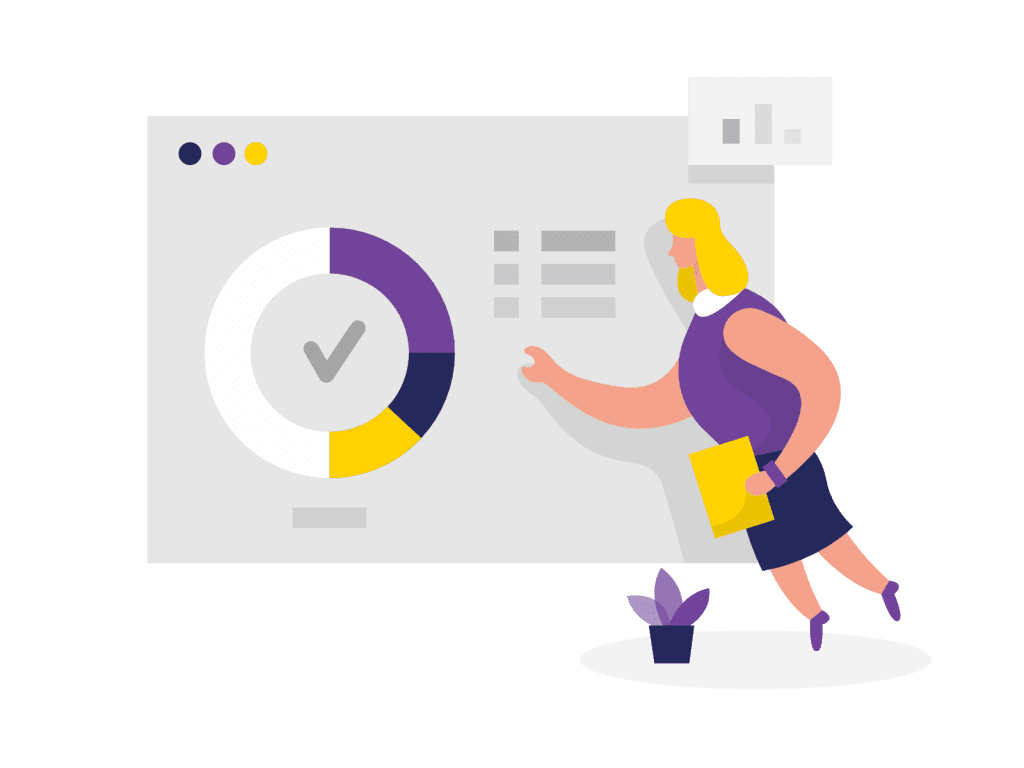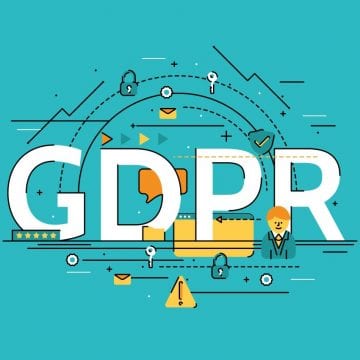GDPR (the General Data Protection Regulation) may have been introduced lightyears ago in May 2018, but it doesn’t stop marketers across the nation quaking in their boots at the thought of those business threat level fines. Time hasn’t made the newest data protection laws any less fierce, and in fact – getting caught out disobeying the tight rules of GDPR is more of a risk to small businesses than it was over two years ago.
Why, you may ask? Well, let’s think about it logically.
The bigwigs at the ICO (Information Commissioner’s Office) rightly sought out the large corps with a considerable annual turnover first – which makes perfect sense given they’re worth more and the repercussions of leaking somebody’s personal data are worse. Though big businesses are able to pay the monstrous fines carved out by the ICO without going under, they will, and have, suffered reputational damage to their brands.

Fast-forward to late 2020, and the ICO has had plenty of experience seeking and punishing businesses for data breaches. No big guys left? OK, let’s tackle the SMEs next. You see where we’re going. We’re not saying this to scaremonger, we are simply suggesting you should follow GDPR best practises in order to remain morally and legally correct in terms of data collecting, handling, processing, analysing, auditing, and reporting (aaaaand exhale!).
Let’s be frank, though – your main prerogative will be to avoid offending so you don’t receive a detrimental fine.
So, in order to avoid paying a max of £18mil or 4% of your annual global turnover, you’ll probably want to conjure up ways to improve your data related business activities.
One of the top ways to stay GDPR compliant is by ditching your paper processes and using digital methods to manage your customer’s personal data, instead.
Here is your guide on how to go paperless, by our team at Tapapp. Good luck!

What is GDPR again?
Forgotten the basics of GDPR? You’re not alone there, considering it’s been 2.5 years since the toughest privacy law in UK history was launched upon businesses of all shapes and sizes. Here’s a quick refresher:
- The General Data Protection Regulation (GDPR) protects the personal data of customers, and though it applies to B2B and B2C, it prioritises business to consumer. So! If you’re a consumer-centric business, it’s time to listen up.
- Personal data means ethnicity, gender, disability, political options, religious views, health, and sexual orientation, meaning these types of data need to be handled with extra care.
- GDPR is largely about CONSENT – in other words, a customer needs to have agreed for you to use their data prior to your handling, processing, marketing etc. of it.
- There are two bases for you to be able to use personal data under GDPR – consent, or legitimate interest.
- When GDPR first came into play, the majority of businesses chose whether to handle their data based on consent or legitimate interest. The latter preserved some of their expensive, invaluable customer data, but it was a risky option and came with grey matter.
- With regards to consumers, the GDPR focused on the “right to object” and the “right to access”. This means it’s pivotal for businesses to be able to produce and share the data they hold on any customer at any given time – a messy customer management system is no longer tolerated.
- High-profile businesses have already been prosecuted under GDPR, including British Airways for £20mil and Marriott Hotels for £18.4mil.
According to research conducted by insurance provider Hiscox, an increase of 160% online data breaches were dobbed into the ICO just 6 weeks after GDPR was introduced.
For further guidance on the GDPR and real-time updates, check out the ICO’s info pages.

Paperless data collection – an easy way to stay compliant
As you’ll know from your own business operations, there are many reasons why you collect personal customer data on a daily basis including:
- Auditing
- Collecting customer feedback
- Completing reports
- Conducting surveys
- Field-based reporting
- Inspections
You might enter and handle this data via paperwork, via mobile forms or forms on a tablet, or a mix of both. The trouble with jotting down personal data on physical forms is that they are at risk of being seen, stolen, lost, and mixed up; misread, misinterpreted, or even duplicated. Digitalising your documents can rid your business of these risks and more, and you might start to see the following improvements instead:
- Streamlining of your business
- Increasing your professional brand image
- Organising your work environment and enabling all members of staff to be “on the same page”
- Easing access to customer information, which can contribute to a seamless customer journey and increase marketing opportunities
- The ability to update personal data on the spot, so no mistakes are made throughout the customer journey
Want to hear more info on how digitalising your documents can increase the productivity and output of your business?
Contact our expert Tapapp team today.

Looking for an easy digital solution? Try Tapapp
If you like the idea of going paperless, Tapapp is a multi-device tool that could work for you. It’s free, the set-up is easy, you can add countless users and there are lots of cool features like ready-made surveys and the option to emboss your company’s colours and logo. For more info, contact our friendly expert guys at Tapapp and learn how to get started today.
Ready to start right away?
Heard enough about going paperless, and want to try digitalising your business today? Follow these simple steps to activate and use your free Tapapp account right now:
1. Sign up via the app or online at www.tapapp.cloud.
2. Use an online drag & drop tool to build bespoke mobile forms, then distribute it to your users via the app or online link on your smartphone, tablet, or desktop device.
3. Collect responses anywhere, analyse and share it with your customers in real-time.
And ta-da! You’re one step closer to being more GDPR compliant.
Browse similar services by Tapapp.
More in our blog:
